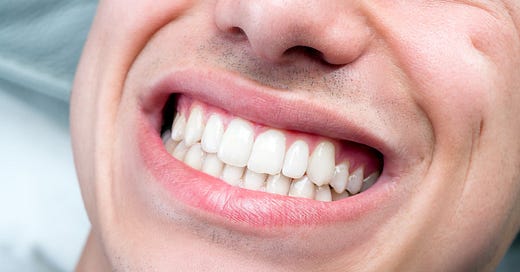Can Grinding My Teeth Affect My Hearing or Ears?
Many people are surprised to learn that teeth grinding, also known as bruxism, can do more than just damage your teeth—it can actually impact your ears and hearing. If you’ve asked yourself, can grinding my teeth affect my hearing or ears?, the answer is yes. The jaw, ear, and facial muscles are all closely connected, and excessive Teeth Grinding Treatment can lead to ear-related symptoms that are both confusing and uncomfortable. Understanding this connection can help you manage both dental and auditory health more effectively.
The Jaw-Ear Connection Explained:
The temporomandibular joint (TMJ) is the hinge that connects your jawbone to your skull, and it’s located right next to your ears. This anatomical proximity explains why grinding your teeth can sometimes result in ear pain or other hearing-related issues.
TMJ and bruxism can affect the ears through:
Shared nerve pathways causing referred pain
Inflammation near the ear canal
Muscle tension radiating to surrounding areas
Disrupted balance due to joint dysfunction
When the TMJ becomes inflamed or overworked from grinding, the pressure can extend to the inner ear, creating symptoms that are often mistaken for ear infections or hearing loss.
Common Ear Symptoms from Teeth Grinding:
If you're wondering can grinding my teeth affect my hearing or ears, you may already be experiencing some of the common symptoms associated with this issue. Many people who grind their teeth report unexplained ear problems that don’t respond to typical treatments.
Ear-related symptoms caused by bruxism may include:
Persistent earaches without infection
Ringing in the ears (tinnitus)
A sensation of fullness or pressure in the ear
Occasional dizziness or imbalance
Mild to moderate hearing difficulty
These symptoms can be ongoing or intermittent, depending on the severity of your teeth grinding and how often it occurs during the day or night.
Tinnitus and Bruxism: A Surprising Link
One of the most puzzling symptoms for many bruxism sufferers is tinnitus—a constant or periodic ringing or buzzing in the ears. If you’ve asked, can grinding my teeth affect my hearing or ears?, and tinnitus is part of your experience, you’re not alone.
Bruxism can contribute to tinnitus in several ways:
Tight jaw muscles can irritate auditory nerves
TMJ misalignment disrupts nearby ear structures
Increased muscle tension affects ear canal pressure
While bruxism isn’t always the sole cause of tinnitus, it can exacerbate it or be a contributing factor. Identifying and treating the grinding habit can significantly reduce the intensity of the ringing over time.
Diagnosing the Root Cause:
Because the symptoms overlap with other ear-related conditions, Teeth Grinding can be difficult to diagnose unless a dentist or doctor is aware of the full picture. If you’ve been wondering can grinding my teeth affect my hearing or ears?, a thorough examination is crucial.
To diagnose bruxism-related ear issues, professionals may:
Examine teeth for signs of wear or chipping
Ask about jaw pain, stiffness, or clicking
Assess bite alignment and jaw movement
Use X-rays to evaluate the temporomandibular joint
Refer you to an audiologist to rule out inner ear disorders
Providing your full symptom history helps ensure you get a diagnosis that addresses the root cause—not just the surface-level symptoms.
Treatment and Relief for Ear Symptoms:
Fortunately, if you’ve determined that bruxism is contributing to ear problems, there are effective ways to manage it. Reducing teeth grinding not only improves dental health but can also relieve ear-related symptoms.
Recommended treatments include:
Wearing a custom night guard to prevent grinding
Practicing jaw relaxation exercises and physical therapy
Avoiding gum chewing and hard foods
Managing stress through mindfulness, therapy, or medication
Applying warm compresses to reduce muscle tension
For those with severe TMJ-related issues, a dental specialist or oral surgeon may recommend more advanced treatments such as bite correction or joint therapy.




